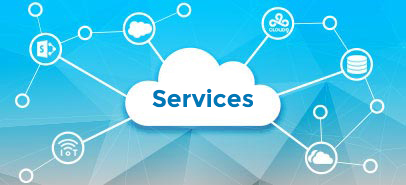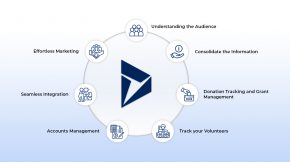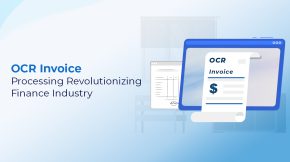Engage and Motivate Your Learners with Gamification in Moodle
Employees are the lifeblood of any organization. Their skills, knowledge, and performance directly impact business success. That’s why effective training is essential. However, traditional training methods often fail to engage modern learners.
This is where Moodle gamification comes in.
Integrating game elements into training programs on the Moodle learning management system can captivate learners’ interest and dramatically improve outcomes. Read on to discover how gamification in e-learning transforms corporate learning and drives better business results.
The Struggle to Engage Learners
Let’s face it – employees often view mandatory training as a chore. They show up out of obligation, sit passively through lectures, and then quickly forget the content. This results in:
- Poor comprehension and retention of information
- Lack of skill development
- Minimal impact on employee performance
Partner with Beyond Key for Gamified Moodle Solutions
Book My Demo
Research shows that only 25% of employees apply skills learned in traditional training programs to their actual work. That’s a massive, missed opportunity considering U.S. companies spend over $160 billion annually on training!
Something needs to change to engage learners and boost training effectiveness.
The Solution: Moodle Gamification
Gamification involves applying gaming elements to non-game environments. This could include points, levels, challenges, leaderboards, badges, rewards, and more.
Implementing gamification in e-learning transforms monotonous training content into something fun and interactive. This leads to:
- Increased learner engagement
- Greater motivation to learn
- Better retention of information
- Improved training outcomes
Because of its versatility, Moodle is the perfect LMS for incorporating gamification. Let’s look at some key benefits:
Boosts Motivation Through Game Elements
- Earning points and overcoming challenges gives learners a sense of achievement.
- Leveling up and leaderboard rankings create friendly competition.
- Badges provide recognition for completing training milestones.
These game dynamics leverage people’s natural desires for accomplishment, competition, and status.
Makes Learning More Interactive
- Quizzes, simulations, virtual rewards, and other interactive elements facilitate active learning and engagement vs. passive content consumption.
- Learners are incentivized to regularly access and apply training concepts through ongoing participation.
Allows Personalized Learning Paths
- Moodle’s monitoring tools help identify individual strengths, weaknesses, and preferences based on their interactions.
- Training content can then be tailored to focus on topics that will benefit each learner the most.
Enables Progress Tracking
- Points, levels, badges, and leaderboards allow real-time tracking of training progression.
- Instant feedback helps learners pinpoint areas needing improvement.
Encourages Collaboration & Peer Learning
- Features like discussion forums, group challenges, and team leaderboards facilitate peer support and collaboration.
- Social interaction increases engagement while building workplace relationships and camaraderie.
The data shows Moodle gamification training delivers tremendous advantages for both learners and businesses.
- 89% of employees say gamification makes them more productive at work.
- 88% find gamified training more engaging and enjoyable than traditional methods.
- 86% are more motivated to achieve their training goals through gamification.
Meanwhile, companies leveraging gamified learning reports:
- 83% faster completion rates for training programs.
- 50% lower training costs overall.
- 36% increase in employee engagement.
Gamification pays off through better training outcomes and improved business performance!
Moodle Gamification Elements to Enhance Training
Now that we’ve covered the benefits, let’s explore some of the game mechanics you can integrate into Moodle courses to captivate and engage your workforce:
Points
Award points for completing training tasks, challenges, assessments, reading materials, and other activities. Enable instant feedback by allowing points to accumulate in real time.
Consider granting bonus points for quick completion or perfect scores to inspire competition. Track total points on leaderboards so learners can see how colleagues stack up.
Badges
Badges offer recognition for achievements and provide a sense of progress. Make them visible on learner profiles. Tie specific badges to completing certain modules, reaching point milestones, or mastering skills.
Levels
Organize learning into a series of levels that must be unlocked sequentially. Associates can “level up” as they complete prerequisites and accumulate points. This creates a logical learning path while tracking advancement.
Leaderboards
Leaderboards display ranked lists of top learners based on points, badge count, or other achievements. This gamification in the learning element taps into people’s natural competitiveness and motivates them to score higher. Update them frequently to encourage continual participation.
Rewards
Offer enticing rewards like gift cards, extra PTO, public recognition, or merchandise to spur training program completion. Tie rewards to earning certain badges, reaching high point thresholds, or ranking on leaderboards.
Unlocking Content
Restrict access to certain modules or materials until learners meet defined prerequisites like achieving a point threshold, earning a badge, or completing prior lessons. This engages them to advance through requirements.
Storytelling
Craft an engaging narrative arc throughout the course, with characters who accompany learners through different challenges and adventures. Leverage escapism and immersion strategies used in gaming to make training truly engaging.
Challenges
Incorporate quests, contests, puzzles, and other challenges that put skills and knowledge to the test. Enable learners to practice applying what they’ve learned in a risk-free environment. Make challenges increasingly difficult as associates level up.
How to Use Gamification in eLearning
Implementing gamification in your eLearning initiatives may seem daunting initially. However, it becomes much more approachable when you break it down into manageable steps:
Set Objectives
Clearly define what skills, knowledge, or behaviors you want the training to instill. This provides a framework for aligning gamification mechanics tightly to desired outcomes.
Understand Your Learners
Create learner personas that capture details about motivation, challenges, learning styles, and demographic factors. This will help you select game elements that resonate most.
Choose Game Mechanics
Consider dynamics like points, levels, challenges, rewards, avatars, social engagement loops, narratives, etc. Select elements that best reinforce your learning objectives and appeal to learners.
Build in Feedback Loops
Ensure learners receive real-time feedback on achievements like collecting points and badges so they stay motivated to progress further.
Make it Visual
Incorporate leaderboards, create animations by using good animation apps, progress bars, trophies, and other visual elements that immerse users and promote mastery through gameplay.
Test and Refine
Conduct small pilot programs to test gamification features before scaling them across the entire organization. Use feedback, analytics, and direct input to refine the experience.
Align to Company Culture
Match game elements to the broader corporate culture. For example, recognition-focused cultures may especially embrace badges and leaderboards.
Following this process will help you successfully integrate the right gamification strategies into your eLearning programs and get maximum results.
Ignite Corporate Learning with Moodle Gamification
The benefits are clear. Implementing gamification strategies can completely reinvigorate stale training programs and drive better business outcomes.
However, integrating gamification effectively requires specialized expertise. That’s where Beyond Key comes in.
Our certified Moodle experts are passionate about creating transformative learning experiences through gamification.
We’ll conduct workshops to determine your specific training goals, target audience, and challenges. Then our team of seasoned instructional designers, multimedia developers, and Moodle programmers will work closely with you to create a cutting-edge gamified training program tailored to your needs.
Our full-service offerings include:
- Moodle course gamification design & strategy
- Custom game mechanic integration
- Badge, points, leaderboard & reward configuration
- Interactive challenge & story creation
- Custom Moodle development
- Seamless LMS integration & configuration
We utilize proven instructional design frameworks like Gagné’s 9 Events of Instruction to ensure courses effectively facilitate learning and retention.
Our agile Moodle development approach delivers maximum impact through rapid iterations, user feedback, and continuous evolution. All our solutions integrate seamlessly with your existing training ecosystem.
Count on Beyond Key for cost-effective, engaging training powered by Moodle gamification. Our experts will partner with you to:
- Identify ideal gamification strategies based on your training objectives, learner personas, and business goals.
- Align game mechanics tightly to desired skills and behaviors.
- Incorporate principles of motivation, engagement, progression, and storytelling into course design.
- Develop a tailored solution using Moodle’s flexible gamification capabilities and functionality.
- Continuously enhance the training program through built-in analytics and user input.
Don’t settle for boring, passive learning that fails to deliver results. Partner with Beyond Key to unlock the potential of Moodle gamification and create a transformative learning experience your employees will love.












